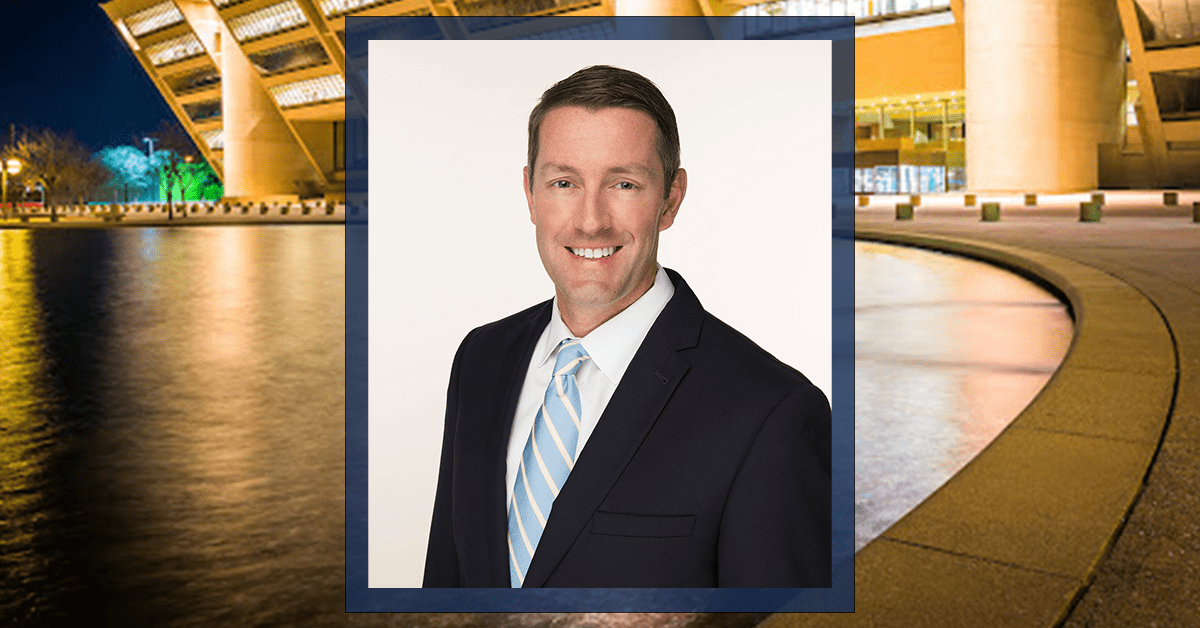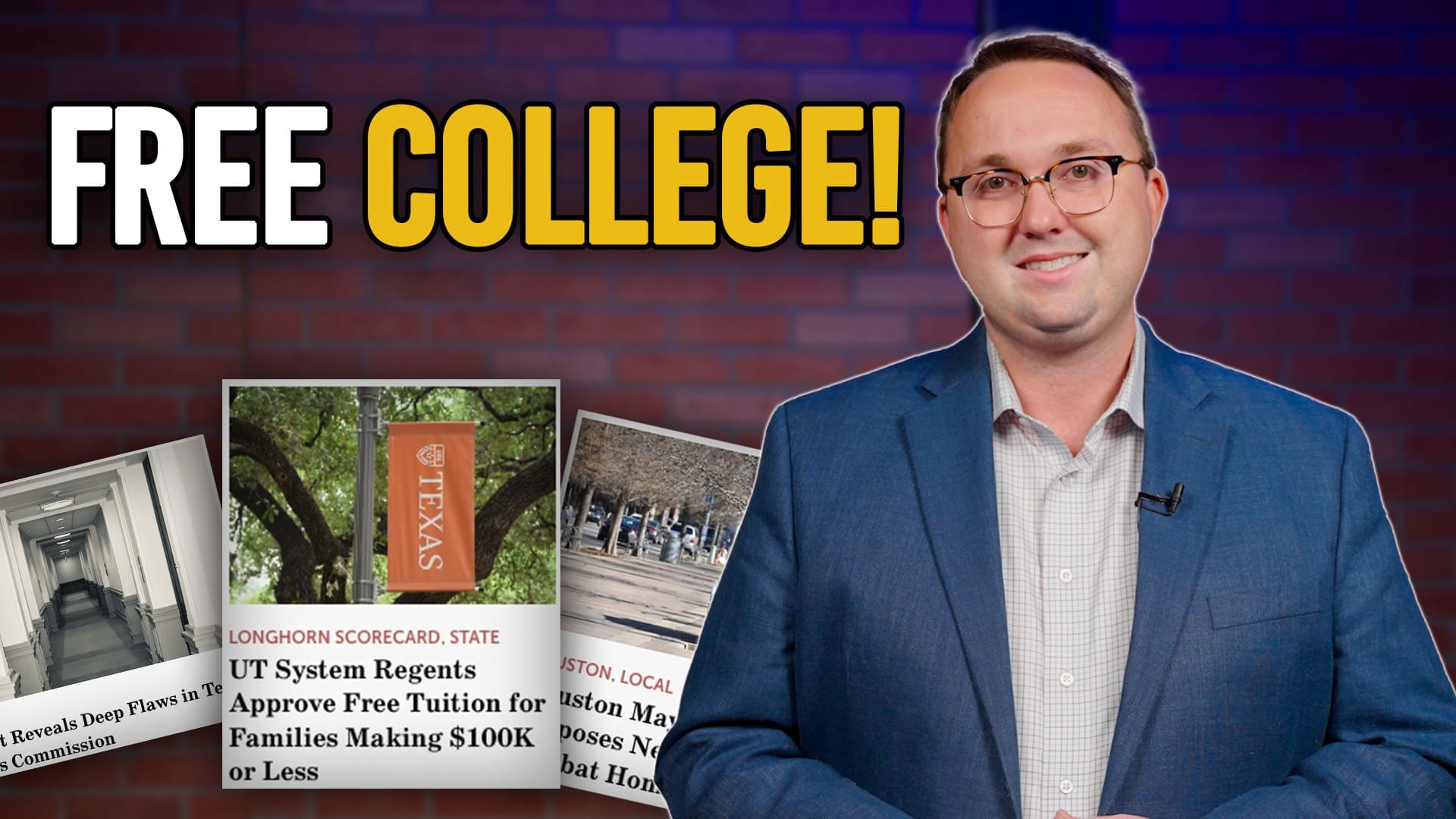Councilmember Chad West says his amendment requiring a committee hearing before releasing additional funds to police overtime is fiscally responsible, not defunding. He also answered questions about city debt, spending, and what supportive council members said his amendment is about: local control.
Two weeks ago, eight city council members approved West’s amendment to move $10 million of the proposed police overtime budget to a saving account for police use only. City council stipulated that after an audit of police overtime is published, there will be a hearing of the Public Safety Committee where Police Chief Eddie Garcia must ask that the funds be transferred back. The full audit is expected in late October or early November.
The city council will hold its final vote on the proposed amended budget on Wednesday, September 22.
West agreed to an interview with Texas Scorecard, in which he answered tough questions about his amendment. Part 1 covered specifics and background; in Part 2, he responds to questions about fiscal responsibility in Dallas, local control, and whether his amendment is defunding police.
Texas Scorecard: According to Merriam Webster’s Dictionary, the definition of “defund” is “to withdraw funding from.” By your own admission, you stated your amendment is to withdraw $10 million from police overtime and deposit it into a non-departmental fund, pending a future committee briefing. Is that not so?
West: “To clarify, the amendment moves the $10 [million] from the overtime budget into overtime reserves. No other department can access it, and the funds are earmarked specifically for DPD overtime. In my opinion, this does not meet the definition [of defund].”
Texas Scorecard: Councilmember Cara Mendelsohn stated the driver of police overtime usage is the lack of police officers. Do you agree? And if not, why? What do you think is the driver?
West: “I do agree with Cara that the primary driver of police overtime usage is the lack of police officers, and I commend the chief, and city manager, and frankly the last couple of councils for addressing the … problem.
“There are other issues that concern me, which is why I want the briefing. I still have not heard what checks and balances are in place, [and] … we have an audit that’s out there that might identify other issues. Those are really … the unknown[s] that I have not been able to cross off my list.”
Note: West was interviewed before an interim report of the police overtime audit was published. Should West wish to give a statement to Texas Scorecard about the audit, we will publish it.
“I think just saying that it’s an officer shortage … simplifies it too much. I think the problem is more complicated than that, and we need to be open to hearing what all of the possibilities are.
“The voters and residents of the city of Dallas … want public safety. It’s very, very important to them, but fiscal accountability and responsibility is also important to them. I don’t think it’s a zero-sum game here. I think you can have a strong public safety policy, and a strong public safety budget, and also have fiscal accountability and checkpoints. That’s what I’m seeking to do with this amendment.”
Texas Scorecard: A study by Truth in Accounting found Dallas has a debt burden of $5.1 billion and needs to collect an additional $13,500 from each taxpayer. Of the $10 billion-plus in retirement benefits promised, more than $5 billion aren’t funded. Dallas earned the worst score of all Texas’ major cities, ranking 61st out of the 75 American cities TIA studied. Have you, or any other council member to your knowledge, made a motion to fully fund these benefits and retire these debts?
West: “The retirement obligations is something we’ve got to dig into very soon. It is not an issue that any council member, that I’ve heard at least, is chomping at the bit to jump out in front of because it is a political hot potato. It’s something we’ve actually absolutely got to do, and I’m committed to taking that on this year.”
Texas Scorecard: Have you or any other council member, to your knowledge, made a motion to keep spending flat—not increasing spending from the current budget—or to spend less?
West: “There has not been anyone that I’ve heard so far that is trying to keep spending flat as compared to last year. But there [have] been motions, and I’ve supported those, that have reduced the actual tax rate that’s imposed … on each taxpayer [by the city].
“The challenge we have is [Dallas Independent School District] and the county also make up a part of that property tax rate that we all pay. DISD has the largest share of it, and [it] routinely goes up a lot every year. What the city does is important, but it’s also important to look at what DISD and the county do with their portion.”
Texas Scorecard: The phrase “local control” was used often as a reason for your amendment. The same phrase is being used by other local officials who are mandating masks and even segregating and resisting citizens protesting such measures. It’s also been used in the past to resist efforts to slow the growth of property tax bills.
Is it in the best interest of Dallas citizens for their city council to take the side of officials who citizens say are actively fighting against them?
West: “My response to that would be if citizens are concerned about who their elected officials are, then they need to take the appropriate action during the election cycle.
“There is local control for a reason. What happens at the state level doesn’t always translate the same in large cities as it does in small cities, and vice versa. [A one-size-fits-all] approach is really a very heavy-handed governmental attempt at creating more big government, in my opinion. [It] is surprising that we would have a conservative government in Austin that would take such a heavy-handed approach, trying to micromanage its individual cities. It seems the opposite of what conservative values are espoused to [be].
“I think there are examples of where local politicians in all cities overreach a little bit on certain things, and I think there are examples of where state politicians overreach a certain bit. But in this situation, by the state imposing limits on what we can do with our own city budget, it hamstrings us, in a sense. It takes away the flexibility of the local officials. I can’t support that, whether it relates to public safety or to any other department.”
Note: West is referring to House Bill 1900, which punishes cities that defund their police.





